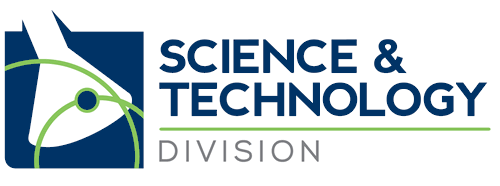A happy, healthy and successful 2022 from the S&TD Leadership Council! We wish you all a year filled with great clients, fun projects, and new opportunities to grow. One thing we especially hope for this year is a fully in-person ATA conference in October where we can all meet each other again without restrictions. In this news update: Welcome to our new Blog Co-Editor, call for ATA63 speakers, and ways to stay connected. Read more
Disclaimer
Disclaimer
The views expressed in this article are those of the author(s) and not necessarily the official position of ATA.
-
-
by Karen Tkaczyk, PhD, CT, FITI Originally published February 10, 2017 in Thoughts On Translation, Corinne McKay’s blog for freelance translators. Editing texts written in English for publication by scientists who have another language as their mother tongue is a relatively common sideline for freelance translators. The measure of success is the article being published after we have worked on it. Even better, the author sends subsequent manuscripts before submission to avoid the painful step of criticism or rejection. We become a trusted partner.
-
by Patrick Weill, CT Would you like to improve your level of success in translation or interpreting? If so, I have a four-part philosophy regarding some recent experiences I have had as a translator that I would like to share with you. The four S’s refer to skill, sales, self, and service. Developing these four areas allows us to unlock our potential and move more freely both professionally and personally. I’ve grouped them into two pairs: the more technical “skill and sales” pair, and the more personal “self and service” pair. The elements of each pair, and the two pairs …
-
Have you considered presenting at the 58th Annual Conference in Washington, DC? Here’s how: Learn more about the process by watching Corinne McKay’s free webinar on the topic, “How to Write a Winning ATA Conference Proposal.” Available through ATA’s YouTube channel at www.youtube.com/watch?v=LkiVHH7RcS. Contact your Division Administrators at divisionS_TD@atanet.org to discuss your ideas. Visit www.atanet.org/conferencesandseminars/proposal.php to submit your proposal by March 3. We have posted two articles on our blog: “A Review of Raquel Yáker Alazrachi’s Glossary of Petroleum, Environment and Natural Gas, English-Spanish, Spanish-English, Second Edition,” by Clarisa Moraña “The 4 S’s, part 1: Skill,” by Patrick Weill The …
-
A Review of Raquel Yáker Alazrachi’s Glossary of Petroleum, Environment and Natural Gas, English-Spanish, Spanish-English, Second Edition
by Disclaimerby Clarisa Moraña I still remember my first translation as a free-lancer, a triplex pump handbook for a leading oil & gas service company, more than 25 years ago. I knew for sure what a “pump” was, but the term “triplex pump” puzzled me! Besides, I had to deal, for the first time in my life, with specific terminology such as the name of every single pump component. The technical bilingual dictionaries highly recommended by our translation teachers at my university in Caracas failed to provide me with satisfactory terminology.
-
Happy 2017 from the Science & Technology Division! Did you know that presentation proposals for the 58th Annual Conference in Washington, DC are due by Friday, March 3? We encourage members to start thinking about proposal topics now. For more information about the process, visit www.atanet.org/conferencesandseminars/proposal.php or contact your Division Administrators at divisionS_TD@atanet.org with your ideas. We have posted two new articles on our blog: “Beware of fraudulent websites that could ruin your reputation or worse: how I achieved a happy ending,” by Carola F. Berger “Review of Tapani Ronni’s Session on CRISPR at the ATA 57th Annual Conference,” by …
-
Beware of fraudulent websites that could ruin your reputation or worse: how I achieved a happy ending
by Disclaimerby Carola F. Berger, PhD, CT A few months ago, I discovered, thanks to Google Alerts, that a fraudulent website was using my business name and excerpts of my copyrighted website content without my permission to advertise their dishonest services. My business name, which was used on the aforementioned site without my permission, has been registered in the State of California, United States of America, since 2010. The illegal use of copyrighted excerpts from my website violates the U.S. Digital Millennium Copyright Act.
-
By Brooke A. Cochran Tapani Ronni presented an extremely intriguing session on Friday, November 4, 2016 at the ATA 57th Annual Conference. entitled “CRISPR Gene Editing: From Tailored Gene Therapy to Species Engineering.” Between his PhD in genetics and his experience as an English to Finnish translator, he was at ease sharing his knowledge with the 30 or so attendees. Ronni began with a general history of gene editing. It was interesting to learn that it goes back to the 1970s but was not successfully applied until the late ‘80s. As such, gene editing is a relatively new branch of …
-
Dear readers, my name is Patrick Weill, or Pat for short. I am delighted to have been accepted as a new blog editor and I am at your service for anything you may wish to publish here on our division’s blog.
-
Review of the Lecture Given at ATA 57 by the S&T Division’s Guest Speaker, Dr. Carl Haber: “Seeing Voices: Using Light to Restore and Preserve Early Recorded Sound” by Patrick Weill
by DisclaimerDear readers, it is my pleasure to present this summary of the two-hour talk, given in November 2016 at the 57th Annual Conference of the American Translators Association in San Francisco, California, entitled “Seeing Voices: Using Light to Restore and Preserve Early Recorded Sound.” It was a fascinating inside look into the type and level of material that a scientific/technical translator or interpreter might have to render into another language. Dr. Haber, our division’s guest speaker for this year’s ATA conference, received a MacArthur Fellowshipin 2013 and he is the director of the IRENE project at the Lawrence Berkeley Laboratory, …

